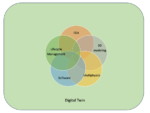The 15th TSMC Open Innovation Platform® (OIP) was held last week. In preparation we did a podcast with one of the original members of the TSMC OIP team Dan Kochpatcharin. Dan and I talked about the early days before OIP when we did reference flows together. Around 20 years ago I did a career pivot and focused on Strategic Foundry Relationships.… Read More
Tag: siemens
Podcast EP178: An Overview of Advanced Power Optimization at Synopsys with William Ruby
Dan is joined by William Ruby, director of product management for Synopsys Power Analysis products. He has extensive experience in the area of low-power IC design and design methodology, and has held senior engineering and product marketing positions with Cadence, ANSYS, Intel, and Siemens. He also has a patent in high-speed… Read More
Using Linting to Write Error-Free Testbench Code
In my job, I have the privilege to talk to hundreds of interesting companies in many areas of semiconductor development. One of the most fun things for me is interviewing customers—hands-on users—of specific electronic design (EDA) tools and chip technologies. Cristian Amitroaie, CEO of AMIQ EDA, has been very helpful in introducing… Read More
Convergence Between EDA and MCAD and Industrial Software
Cadence hosted a panel at DAC on how EDA, MCAD and industrial software have come together, a topic I always find interesting. Many years ago, I worked on a NAVAIR contract bid team, an eye-opener for a young engineer who thought that innovation started and ended with electronic design. I remember CATIA (3D modeling) being a component… Read More
Pushing Acceleration to the Edge
As more AI applications turn to edge computing to reduce latencies, the need for more computational performance at the edge continues to increase. However, commodity compute engines don’t have enough compute power or are too power-hungry to meet the needs of edge systems. Thus, when designing AI accelerators for the edge, Joe… Read More
The Increasing Gaps in PLM Systems with Handling Electronics
Product LifeCycle Management (PLM) systems have shown incredible value for integrating the enterprise with a single view of the product design, deployment, maintenance, and end-of-life processes. PLM systems have traditionally grown from the mechanical design space, and this still forms their strength.
Meanwhile, due… Read More
Designing a FinFET Test Chip for Radiation Threats
Much of the technology that goes into aerospace applications is some of the most advanced technology that exists. However, these same systems must also offer the highest level of reliability in what is arguably an extremely difficult environment. For semiconductors a major environmental risk in aerospace applications are … Read More
Balancing Test Requirements with SOC Security
Typically, there is an existential rift between the on-chip access requirements for test and the need for security in SoCs. Using traditional deterministic scan techniques has meant opening up full read and write access to the flops in a design through the scan chains. Having this kind of access easily defeats the best designed… Read More
SIP Modules Solve Numerous Scaling Problems – But Introduce New Issues
Multi-chip modules are now more important than ever, even though the basic concept has been around for decades. With The effects of Moore’s Law and other factors such as yield, power, and process choices, reasons for dividing what once would have been a single SOC into multiple die and integrating them in a single module have become… Read More
DARPA Toolbox Initiative Boosts Design Productivity
When you think of the Defense Advanced Research Projects Agency (DARPA), this first thing that comes to mind is the development of the internet. And indeed, if you look at their website’s historic timeline, the development of ARPANET, as it was known at the time, is shown prominently in 1969. Incidentally, I actually used one of … Read More










